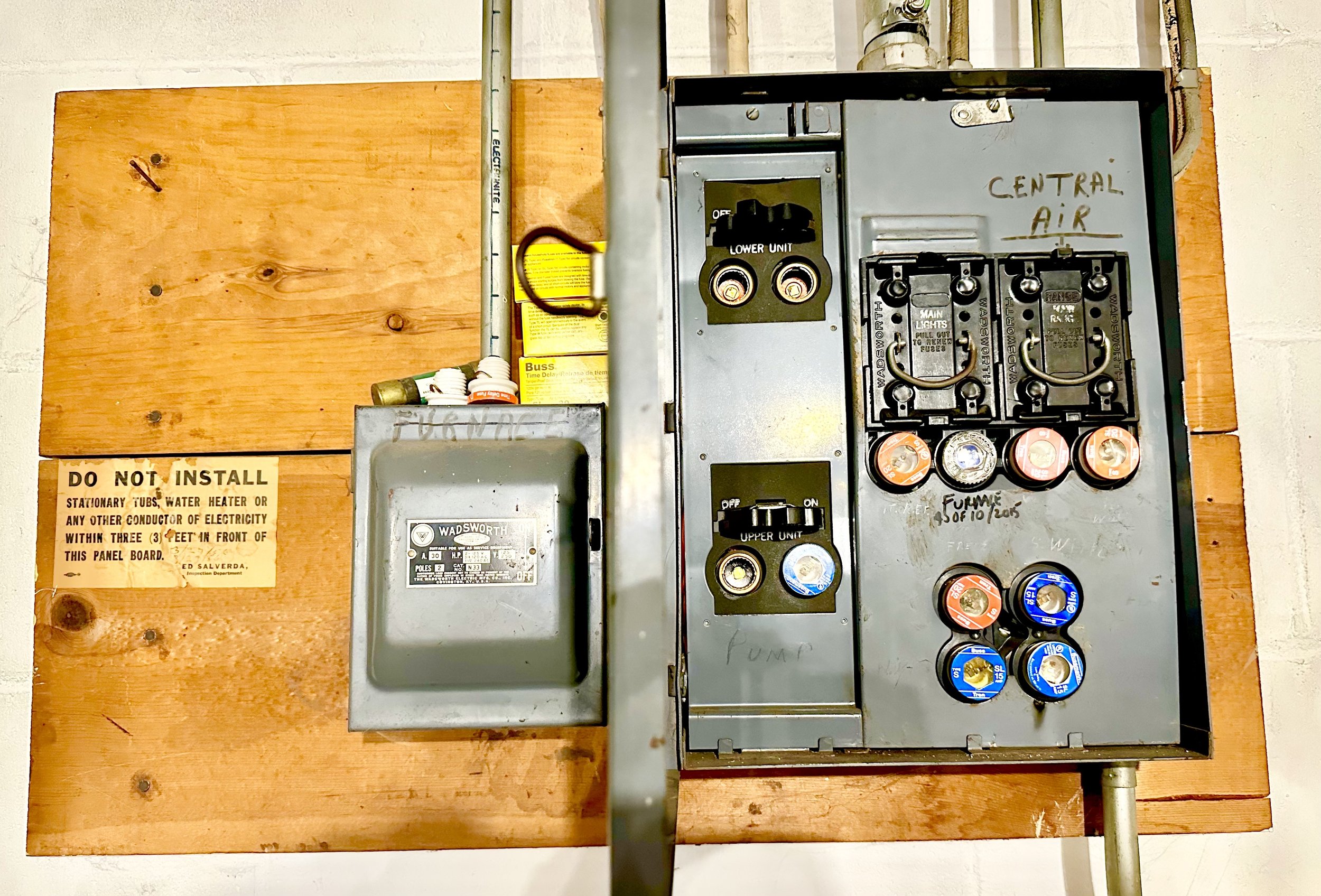Fuses Versus Breakers: What’s in your electrical panel?
In the past few weeks, I've noticed an uptick in service inquiries from customers interested in upgrading their electrical panels. It's no surprise, as the electrical panel serves as the heart of any home or building's electrical system. Understanding some essential information about electrical panels is crucial for every homeowner or building owner.
Let’s explore further…
The primary function of an electrical panel is to distribute electricity from the main electrical supply to different circuits in your home or building. This distribution ensures that electricity reaches all the lights, appliances, and outlets, making the electrical panel the central hub of your home's electrical system.
Additionally, the electrical panel serves as a safety mechanism for your electrical system. It contains circuit breakers or fuses that help protect the wiring from overheating and causing fires. If there is an overload or a short circuit in any part of the electrical system, the circuit breaker will trip or the fuse will blow, cutting off the power and preventing further damage.
Electrical panels, whether they are made up of fuses or circuit breakers, both work to distribute and protect your wiring and appliances from excessive electricity. Sometimes people unfamiliar with electrical systems use the terms “fuse” and “circuit breaker” interchangeably, but they are two very different devices. While they serve the same function, they operate differently and require different maintenance.
A fuse box, installed circa 1950
A fuse box contains fuses, which are thin wires that are designed to melt and break the circuit if there is too much electricity flowing through them. This helps protect the electrical wiring from overheating and causing a fire.
A circuit breaker panel, contains circuit breakers or switches. These breaker switches automatically trip and turn off the power when they detect an overload of electricity.
Proactive maintenance is required for fuse boxes and involves the periodic replacement of fuses after they blow. Click here for more tips on changing a fuse safely.
Maintaining breaker panels can be convenient to maintain, as they can be reset after a circuit trip without the need to replace any parts.
Click here to learn more about how fuses and breakers compare.
There are advantages to upgrading from a fuse box to a circuit breaker, although it is not always immediately necessary. There are indicators signaling the need for an upgrade:
Frequent fuse blowouts: Frequent fuse blowouts can be a symptom of larger electrical issues, such as wiring problems or an outdated electrical system.
Safety considerations: When a fuse blows frequently, it may indicate that the electrical circuit is overloaded. This can lead to overheating of the wiring, which increases the risk of an electrical fire.
Increased electrical needs: If you are adding new appliances or electrical devices to your home that require more power, your old fuse box may not be able to handle the increased load. Upgrading to a circuit breaker panel with higher capacity can ensure your electrical system can meet your needs.
Home renovations or additions: If you are planning a renovation or adding an addition to your home, it may be a good time to upgrade your electrical panel. This can ensure that your electrical system can support the additional load from the new construction.
Insurance or Building Code Requirements: Some insurance companies or building codes may require homes to have circuit breaker panels rather than fuse boxes. If you are required to upgrade for these reasons, it's important to comply to maintain insurance coverage and meet building code requirements.
Overall, upgrading to a circuit breaker panel not only offers greater convenience but also provides advanced safety features that fuses cannot match. The reality is, fuses don’t have the updated and sophisticated technology that circuit breakers do these days. Breakers truly offer the highest level of circuit protection available.
A circuit breaker panel
Advanced safety technologies such as Ground Fault Circuit Interrupters (GFCIs), Arc Fault Circuit Interrupters (AFCIs), surge protection, smart circuit breakers, and more can be installed in circuit breaker panels but not fuse boxes.
It’s important to know that arc fault protection prevents property fires and ground fault protection prevents shock injuries to people. Both are essential to home and building safety and current electrical code requires the inclusion of these protections.
To learn more about AFCI and GFCI protections, check out resources from reputable organizations such as the National Fire Protection Association (NFPA) or the Electrical Safety Foundation International (ESFI).
Click here to read more about other circuit breaker technologies available.
According to the ESFI, each year, 400 people are electrocuted in their own home or yard. If you are unsure about how to maintain your electrical panel, it’s always safest to call a professional who is highly trained, licensed, bonded, and insured. Collective Electric specializes in electrical panels and electrical safety. Reach out today for help assessing the safety and suitability of your current system!


